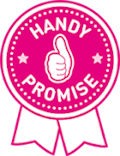Vitamin and supplement labelling
The vitamin and supplement business is huge and growing year on year, the figure currently stands at nearly half a £billion so it’s not surprising that companies and individuals are trying to grab a piece of that pie.
The sector includes a wide variety of products; vitamin, mineral and multivitamin pills, health drinks, homeopathic remedies, diet and bodybuilding supplements, herbal and botanical remedies, the list goes on. The one thing they all have in common is that they are ingested, so like food, they have special labelling requirements.
All ingredients must be listed and those ingredients must be approved and permitted for use as intended ie for human consumption. Herbs, natural remedies and botanicals have to be on the approved list that has been granted, Traditional Herbal Registration from the Medicines and Healthcare Products Regulatory Agency. A banned or restricted list is also available with permitted levels of each ingredient specified where applicable.
If an additive or ingredient is not found on either list and has no documented history of consumption, it may be eligible as a novel product but authorisation from the relevant institution is mandatory.
Nutrient reference value (NRV) vs Recommended daily amount (RDA)
To be able to claim that your product gives a benefit from a vitamin, the Nutrient Reference Value (NRV) must be over a certain amount. NRV is a direct replacement for Recommended Daily Allowance (RDA) and the figures are exactly the same and are the agreed optimal daily intake of each of 13 vitamins and 14 minerals. It varies from product type to product type but less than 15% is considered ineffective so should be excluded from the claims on the label.
Health benefit claims
You must be able to substantiate any claims you make about the health benefits or other effects of the product that you claim on the packaging. This evidence can be from established sources since, for example, the benefits of most vitamins and minerals are well documented. The labelling should also not imply that a product can in any way replace a healthy balanced diet.
The advice above represents only the opinion of Handy Labels of the applicable regulations. The legal responsibility for ensuring that the labelling conforms to the applicable laws and regulations remains with those who operate the business. For further details see our terms and conditions.
